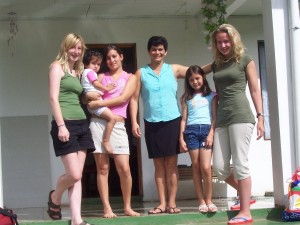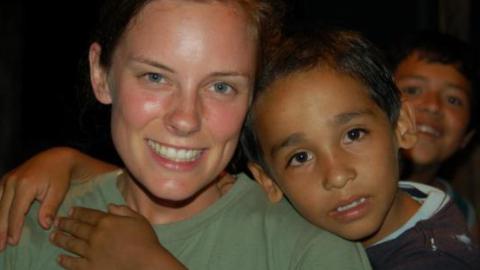Costa Rica Teaching News – Yes, it’s a great way to see the world. Yes, it will provide you with valuable personal and professional experience for the future. And, yes, you can make money doing it. That is, if you’re qualified.
 Being a native English speaker is not a qualification to be an English teacher. It is requisite only insofar as having a driver’s license is to be a bus driver. While being a requirement for many institutions, it does not mean that you can do the job.
Being a native English speaker is not a qualification to be an English teacher. It is requisite only insofar as having a driver’s license is to be a bus driver. While being a requirement for many institutions, it does not mean that you can do the job.
This is one of the biggest misconceptions about teaching English abroad. I field many questions on a daily basis from prospective teachers and this is by far one of the most frequent. An expectation is formed based on English being one’s native tongue. This is a thought that needs to be squashed. It is easy to see why this view is formed, but let me dispute it by displaying the perspective of your future clientele.
The ESL market globally is enormous and the market in Costa Rica is no different. It is no mistake why the central valley is saturated with language institutes: there is money to be made. The most common ESL job in Costa Rica is teaching business English. This means that, in the majority of cases, the teacher will be providing lessons, on site, in large corporations who pay top dollar for the best language service possible. As a result, language institutes are required to send professional, experienced, and qualified instructors.
This of course doesn’t mean that the conference rooms of Hewlett-Packard and Intel are filled with English PHD students. Certainly not. However, there is a higher expectation, and rightly so, that the return on the cheques they stroke for language services will be something more than a fresh body off a plane looking for an adventure.
There are extremes to everything. You will find schools that will hire you in your shorts and sandals as you’re sipping your poolside margarita. To each his own, but that might not be the school for me. There are also schools that ask for a Master’s in education. With these being the extremes, there is common ground to be found.
A reputable language institute will expect that you have two basic requirements: a University degree (often the discipline does not matter) and a TESOL ,TEFL or equivalent certification. Experience is usually described as a bonus rather than requisite. Language schools aren’t in the business of teaching you to be a teacher. That is expected of you if you are applying. They will take the time to train you in their methods and techniques but expect that base from you to be learned in your certification course.
Even with a certification course under your belt, the learning curve doesn’t stop. A common response I get from past graduates is that their own English is much improved as a result of teaching it. This may sound strange, but it is all too true. Some advice for aspiring ESL teachers: Book up.
If phrases like the present perfect, the zero conditional and the indirect article don’t sound familiar, you will want to study up on your English grammar. First impressions are very important and an ‘I don’t know’ at the front of a room, especially with a new class, doesn’t sound great – even from an experienced teacher.
These are all things that can be, and will be, learned with time. It’s imperative, though, to be cognitive of these factors and not just assume that simply having English as your native language, or one you speak very well, will translate into classroom success. Teaching English is a real job and you will be tested on your qualifications and grammar. Those who rise to the top are the ones who take it with the required professionalism and initiative.
If you want more information about teaching English in Costa Rica or getting your TEFL or TESOL certificate in Costa Rica feel free to contact Andrew at the Global TESOL College or email andrew@globaltesolcostarica.com
Originally from Toronto, Canada, Woodbury is the academic director of Global TESOL College Costa Rica , a contributor to radio program This Week in Costa Rica (http://thisweekincostarica.com/), and an independent writer based in Costa Rica.

